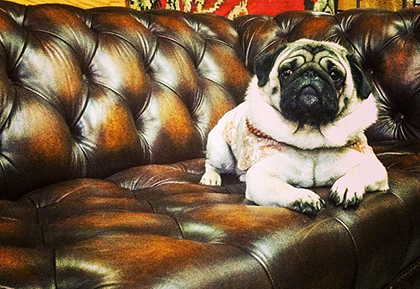 Once Upon a Time … Two newly-minted college graduates step out into the world. Their names are Abel and Kant.
Once Upon a Time … Two newly-minted college graduates step out into the world. Their names are Abel and Kant.
Both have Bachelor of Arts degrees from state universities. Both carry $25,000 in student loans. Both have average family backgrounds.
They feature similar height, build and appearance. They project the same grammar, diction and poise.
They’re virtually the same in every characteristic but one: Their attitudes.
No, I’m not talking about “carpe diem” rah-rah feel-good attitudes.
I mean their hidden assumptions about life.
One makes decisions based on what looks good on her resume. The other makes decisions based on a mind that sees limitless possibility.
Let’s hear their story, shall we?
Kant
Kant frets about what her future employers might think of her. She loves art, but she opts for a “realistic” major, business management, even though the classes bore her.
“It will look good on a resume,” she tells herself.
Kant loves to draw and paint. But those hobbies won’t help her land a six-figure salary.
So she quit creating art. She fills her days with an unpaid internship at a local consulting company. She volunteers to stay late to file papers.
Deep down, Kant feels overworked and unhappy. She doesn’t like her internship. But she convinces herself that it’s the first rung on the ladder.
“This demonstrates my leadership and initiative,” she tells herself.
Abel
Abel, on the other hand, doesn’t give a damn about what any future employer might think.
She shares the same major, management, because she loves that it pulls knowledge from a broad array of fields. It appeals to her sense of curiosity.
Outside of class, she refuses to pack her after-school schedule with resume-boosters. Instead, she spends her time exploring new topics.
She reads books, listens to podcasts, and watches TED Talks. She strikes up long conversations with intelligent strangers. She plays around with design programs like InDesign, Illustrator and Photoshop.
Abel loves to draw and paint, just like Kant. She gives herself ample free time to practice art.
Kant
Kant and Abel both visit Ecuador during their senior year. But their trips look very different.
Kant participates in an organized research trip with her professor. It’s part of a 3-credit-hour Honors Class.
She would have preferred the freedom to backpack across South America, but her parents dismissed it as dangerous. Anyway, Kant reasons, “international research” will look great on her resume.
Abel
Abel just wants to explore. She flies to Ecuador solo. She feels a little lonely on her first day. No one talks to her.
So she practices breaking out of her shell. She holds eye contact with passing strangers. She smiles reflexively when she encounters someone new.
She meets twenty new people within that first week. She shares small talk with some. She enjoys fascinating deeper conversations with others.
One of those chance encounters is with a man who owns a digital marketing agency near her college town. He asks Abel what she wants to do after graduation.
“I have no idea.”
Abel never tries to impress. She’s just herself.
“Well,” probes the stranger, “what do you enjoy doing in your spare time?”
Abel shrugs.
“Lots of things, really.”
“Like what?”
She tells him about her art – about drawing, painting, and computer design. She describes her opinions about color, composition, lighting and space.
Then she switches gears. She begins describing a psychology book she recently read, which poses a radically new theory about how humans make decisions.
She draws parallels between that book and unrelated research about online consumer behavior that she had heard about in a TED Talk.
“I never would have linked those ideas,” the man says.
Abel continues to chat excitedly. She tells him about eye-tracking studies that illustrate how consumers interact with websites. She talks about new advancements in the fields of art, design and psychology. She veers off-topic and describes a motivational speech she enjoyed.
The man nods, but doesn’t say a word. He knows that her enthusiasm is genuine, and that impresses him most of all.
Kant
Graduation day arrives, and Kant is panicking.
Her relatives keep asking her what’s next on the horizon. Does she have a job lined up?
Kant is embarrassed to admit that her plate is empty. She’s sent out 50 resumes, which have resulted in six interviews.
Four of those interviews went well, she thought. Two companies even called her back for a second interview. But she hasn’t gotten any offers yet, and now her stomach is tied in knots.
What if she ends up with a gap on her resume? How will she explain this?
“Breathe,” she tells herself. “A summer-after-graduation gap isn’t so bad. I’ll get a job offer by August.”
Then she thinks about the $25,000 debt she racked up getting this degree, and starts panicking again.
Her minimum loan payments are $300 per month, and her 7 percent interest rate ratchets the balance higher each month. She figures she’ll be in debt for 10 years.
She’s not the least bit concerned about her passion. She just wants a job.
Abel
Abel is cool as a cucumber. She doesn’t send out any resumes. The idea of getting trapped in a cubicle with two weeks of vacation doesn’t appeal to her.
She’s not sure what to do. She waits tables at a Mexican restaurant, which pays the bills. She improves her coding and design skills at night.
After a few months, she begins picking up web design projects during the evenings and weekends. She pulls in an extra $2,500 each month, and throws every penny towards decimating her student loans.
After 10 months, Abel demolishes her student loans. She works four more months, saves another $10,000, and flies back to Ecuador.
Kant
Kant tries not to think about the disappointing year that’s passed since graduation.
After 8 long months of searching, she reluctantly accepts a job at an auto dealership. She doesn’t care about cars, and she doesn’t want to work in sales.
But jobs are hard to find, she reasons. And a proven track record in sales will look good on her resume.
Her student loans have ballooned to $27,000 already. She deferred payments while she was unemployed.
She certainly wasn’t going to wait tables to make ends meet, the way Abel had done. After all, she has a university degree. With honors. What would people say?
Abel
Two more years pass by. Abel and Kant both turn 25.
Abel travels throughout Latin America. She loves Brazil; she adores Argentina. But she finally settles down in a beachside town in Costa Rica.
She runs a small but successful freelance web design business from her laptop. It covers her expenses, gives her a nice savings cushion, and allows her to make a meaningful impact on the world.
She’s been debt-free since she destroyed her student loans two years ago. She’s now saving up to buy a small cottage home in cash.
Abel’s freelance success gives her the confidence to dream even bigger. How could she expand? Could she create a partnership with a firm in a related field, like digital marketing, so that her clients could get service from a one-stop shop?
Wait a second, what about that guy she met two years ago? Doesn’t he run a small digital marketing company?
Hmm. The wheels in Abel’s mind are spinning with possibility.
Kant
Kant still works at the car dealership. She dreams about finding a new job, but she’s afraid that switching jobs too often will look bad on her resume.
“I should stay with each employer for at least two years,” she tells herself. “It makes me look like a more stable employee.”
The last two years have been brutal, so she drowns her sorrows in happy hour cocktails. The drinking has caused her to gain a few pounds, but she doesn’t have the motivation to workout. She watches long TV marathons on the weekends to distract herself from the agony of Monday morning.
Kant knows she needs to “dress for success,” so she maintains a closet full of nice clothes. But hey, she scored a great Birkin bag during a Black Friday sale.
She needs to “drive for success,” too, so she took out a $15,000 car loan. But her dealership cut her a deal on financing. And they even threw in free floor mats.
Between the car, clothes, cocktails and cable TV, she can only pay the minimum on her student loans. She will carry those loans for a decade. She fumes over the unfairness of the system.
One morning, Kant decides she’s had enough. She sends an application to a digital marketing agency in town.
The owner calls Kant that evening.
“Your resume looks great,” he says. “Unfortunately, we’re not hiring. We have all the talent we need. We just took on a new partnership with a web-design business based in Costa Rica …”
****
Thanks to Flickr user Canine to Five for today’s photo.
Like this post? Check out: Stop Crying That There Are No Jobs. Create One.
